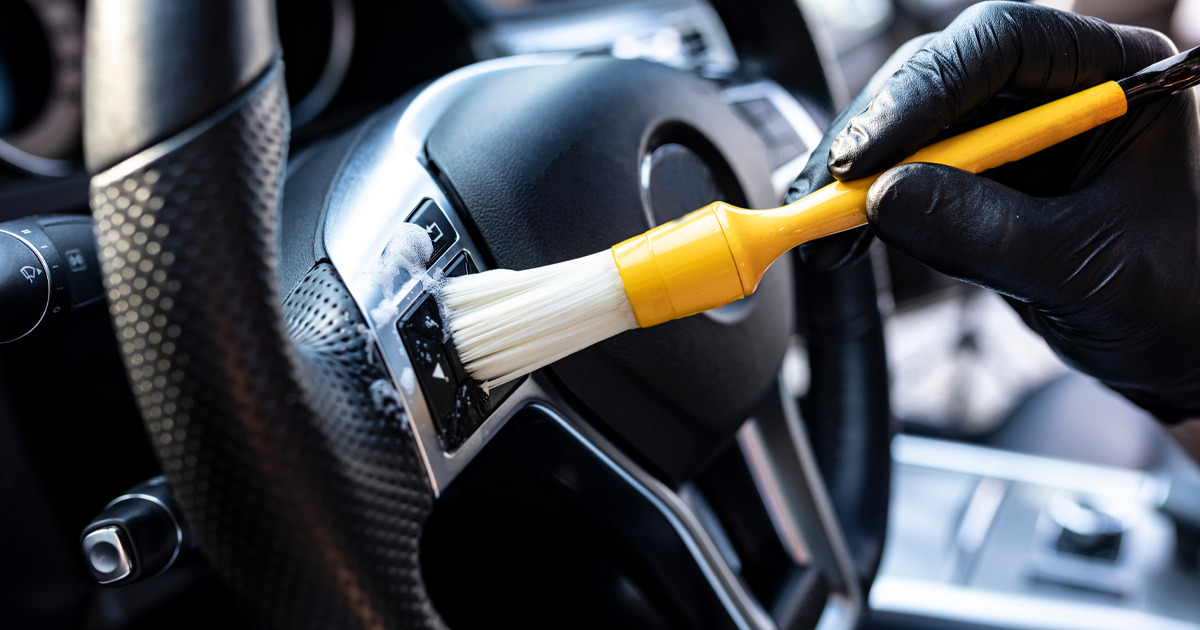Crucial Vehicle Treatment Practices: Keep Your Car in Height Problem
Efficient vehicle care techniques are fundamental to guaranteeing that your vehicle stays in optimum problem throughout its life-span. Regular maintenance jobs, such as prompt oil modifications and tire turnings, play a vital duty in boosting performance and security. Attentive evaluations of the brake system and fluid levels can preempt costly repairs while adding to a trusted driving experience. Several car owners overlook these crucial elements, potentially jeopardizing their financial investment. To better understand exactly how to keep your car's stability, think about the details practices that yield one of the most substantial benefits.

Normal Oil Changes
Normal oil changes are essential for keeping ideal engine performance and longevity. Engine oil functions as a lube for the numerous relocating parts within the engine, preventing friction and wear. Over time, oil can end up being contaminated with particles, steel, and dirt particles, decreasing its effectiveness and causing potential engine damage.
The regularity of oil adjustments can differ based on several factors, including car make and design, driving problems, and the type of oil used. Normally, it is advised to alter the oil every 3,000 to 5,000 miles for traditional oil, while synthetic oils might expand this interval to 7,500 miles or more (Rochester Car Care). However, always speak with the lorry's proprietor guidebook for details referrals.
Along with securing the engine, normal oil modifications add to far better fuel efficiency and reduced discharges. Old, deteriorated oil can lead to increased engine strain, leading to greater gas intake. Maintaining tidy oil aids to promote a much healthier environment by decreasing hazardous exhaust discharges.
Tire Maintenance Tips

Additionally, examine your tires for irregular wear, which can indicate positioning or suspension issues. Turn your tires every 5,000 to 7,500 miles to advertise also wear and prolong their life-span. Focus on walk deepness; tires with insufficient step can jeopardize hold, particularly in wet conditions. An easy test entails positioning a dime right into the step; if you can see every one of Lincoln's head, it's time for brand-new tires.
Misalignment can create early tire wear and affect lorry handling. Normal maintenance of your tires not only boosts security but also improves fuel performance and extends the life of your car.
Brake System Checks
The brake system is a critical part of car safety that needs constant attention and upkeep. Regular checks of the brake system can stop prospective failures and make sure ideal efficiency. Begin by evaluating the brake pads and footwear for wear. The majority of pads have an integrated wear indication, which supplies a distinct signal when they require substitute. Furthermore, check for unequal wear, which may indicate issues with the calipers or suspension.
Next, examine the brake blades for indicators of contorting or racking up. Unequal surface areas can result in bad braking efficiency and should be addressed quickly. It is also necessary to inspect the brake lines and tubes for any type of indications of leaks, fractures, or bulges, as jeopardized lines can result in brake liquid loss and failure.
Liquid Degree Examinations
Maintaining ideal liquid levels is crucial for the smooth operation and longevity of an automobile. Normal evaluations of vital fluids, consisting of engine oil, coolant, transmission fluid, brake fluid, and power guiding liquid, are extremely important to making sure that your automobile performs at its finest. Each of these liquids plays a vital function in the total performance of the vehicle, contributing to various systems such as air conditioning, lubrication, and hydraulic operations.
To carry out an extensive liquid degree assessment, beginning by speaking with the lorry's owner handbook for particular recommendations on liquid kinds and levels. Inspecting engine oil can be quickly done making use of the dipstick technique, making sure that the oil is at the advised level and without debris or staining. For coolant, check the reservoir and radiator, making sure that the blend is totally free and appropriate from impurities. Transmission fluid degrees should be inspected utilizing the designated dipstick while the engine is running, as defined in the handbook. Last but not least, assess the brake and power steering liquids, ensuring they are at proper levels and in great condition. Regular liquid level evaluations not just stop possible failures however also boost general lorry performance and safety and security.
Battery Care and Upkeep
An often-overlooked component of automobile upkeep is the treatment and upkeep of the battery, which plays a critical role in starting the engine and powering electric systems. Regular battery maintenance can significantly prolong its lifespan and avoid unforeseen failures.
To make sure optimum performance, visually check the battery at least once a month. Search for signs of rust or leakage around the terminals, which can impede electric click this site flow. If you notice white, fine-grained deposits, clean the terminals with a mixture of baking soft drink and water, and ensure they are snugly connected.
In addition, check the battery's fluid levels if it is not a maintenance-free model. Covering off with distilled water can assist maintain appropriate electrolyte levels. It's also recommended to check the battery's charge routinely, especially prior to severe weather condition periods, as both cold and heat can influence efficiency.
Purchase a battery maintainer if your lorry is not driven often, as this can avoid deep discharges. Ultimately, a little attention to your battery can go a long way in ensuring your vehicle starts accurately and runs successfully. Regular upkeep cultivates longevity and helps prevent expensive replacements.
Conclusion
To conclude, adherence to vital vehicle treatment techniques dramatically adds to vehicle durability and ideal performance. Routine oil adjustments, attentive tire upkeep, detailed brake system checks, fluid level assessments, and consistent battery care jointly make sure that see here now cars run effectively and safely. Executing these practices not just avoids expensive repairs but additionally boosts general driving experience. Focusing on these upkeep regimens is essential for any type of vehicle proprietor intending to maintain their lorry in peak problem throughout its life expectancy.
The regularity of oil adjustments can differ based on numerous variables, consisting of vehicle make and design, driving conditions, and the kind of oil utilized. Regular evaluations of important fluids, including engine oil, coolant, transmission liquid, brake liquid, and power guiding fluid, are vital to ensuring that your automobile does at its ideal.To perform an extensive liquid degree inspection, beginning by get redirected here seeking advice from the car's proprietor manual for details recommendations on liquid types and degrees. Normal oil modifications, persistent tire maintenance, extensive brake system checks, fluid degree assessments, and consistent battery care jointly make certain that cars operate successfully and safely. Focusing on these upkeep routines is necessary for any type of car proprietor intending to keep their automobile in peak condition throughout its life expectancy.